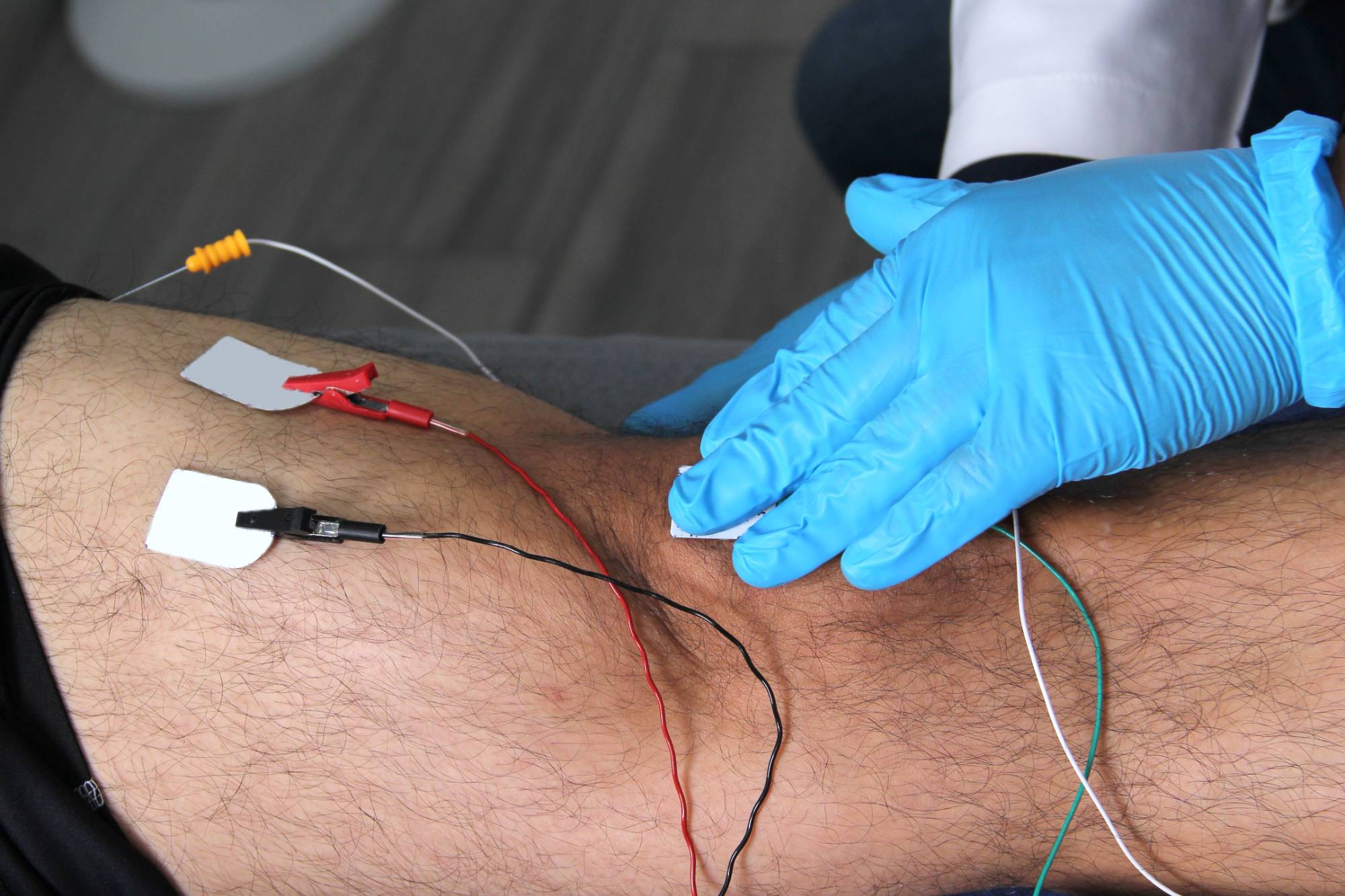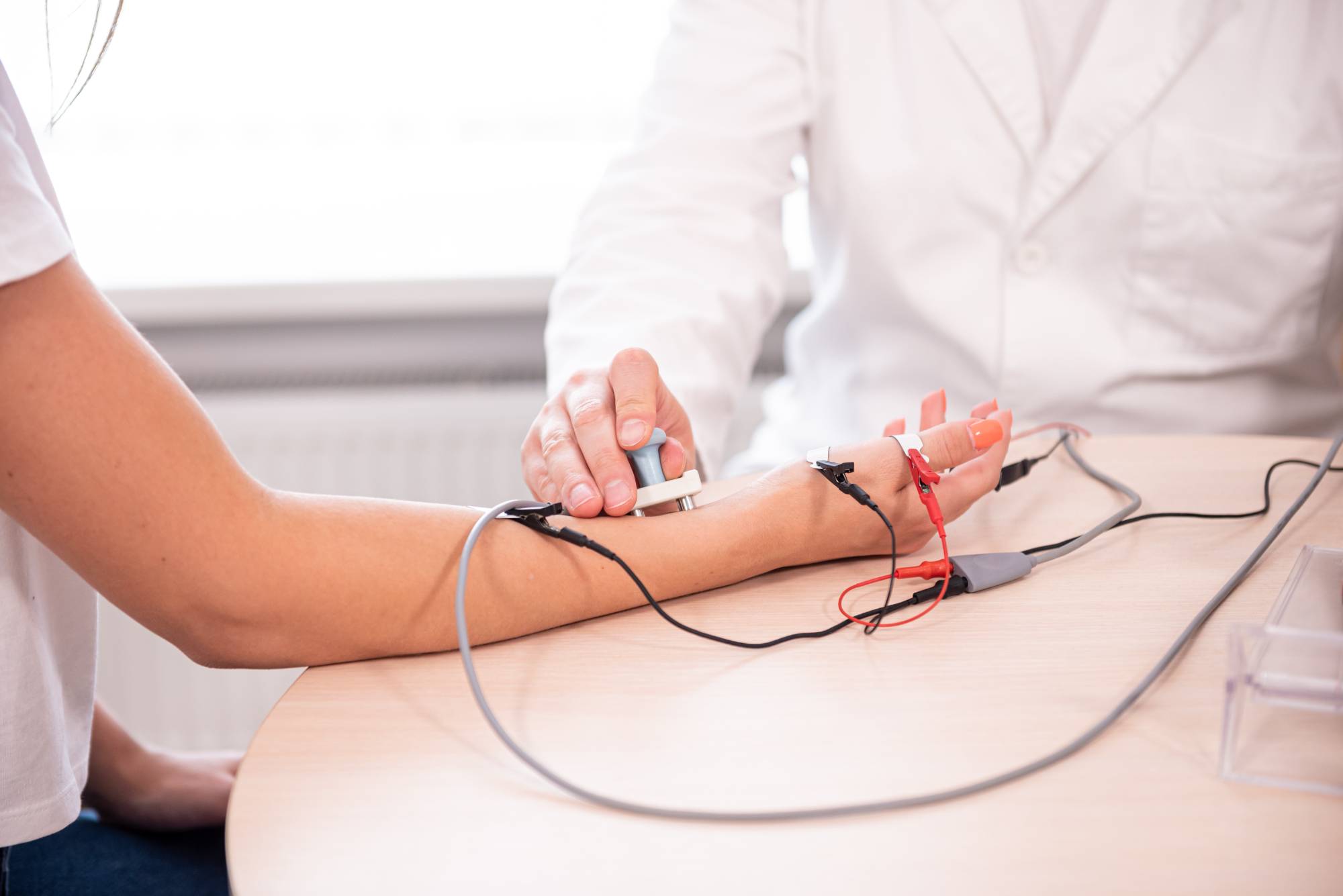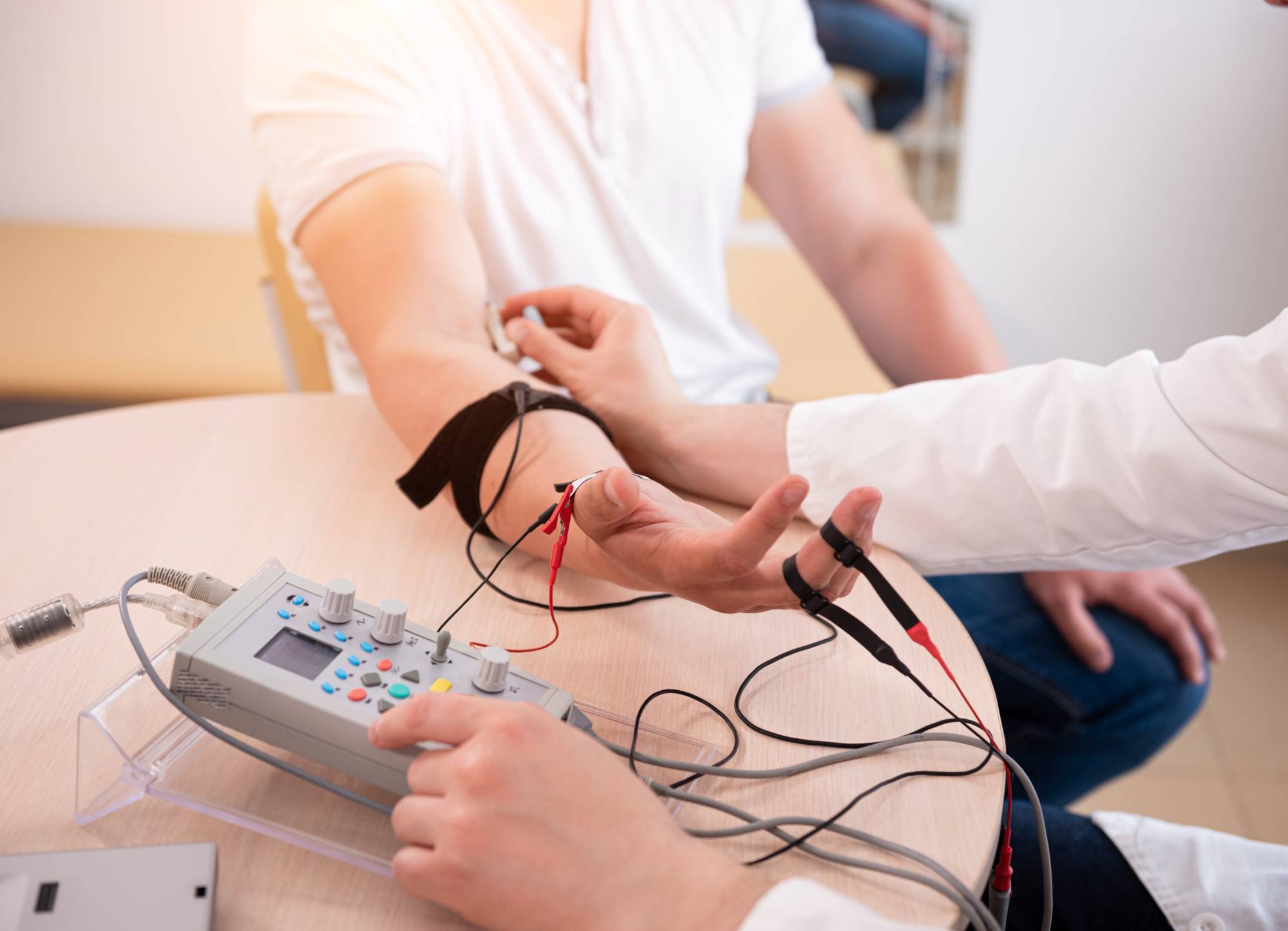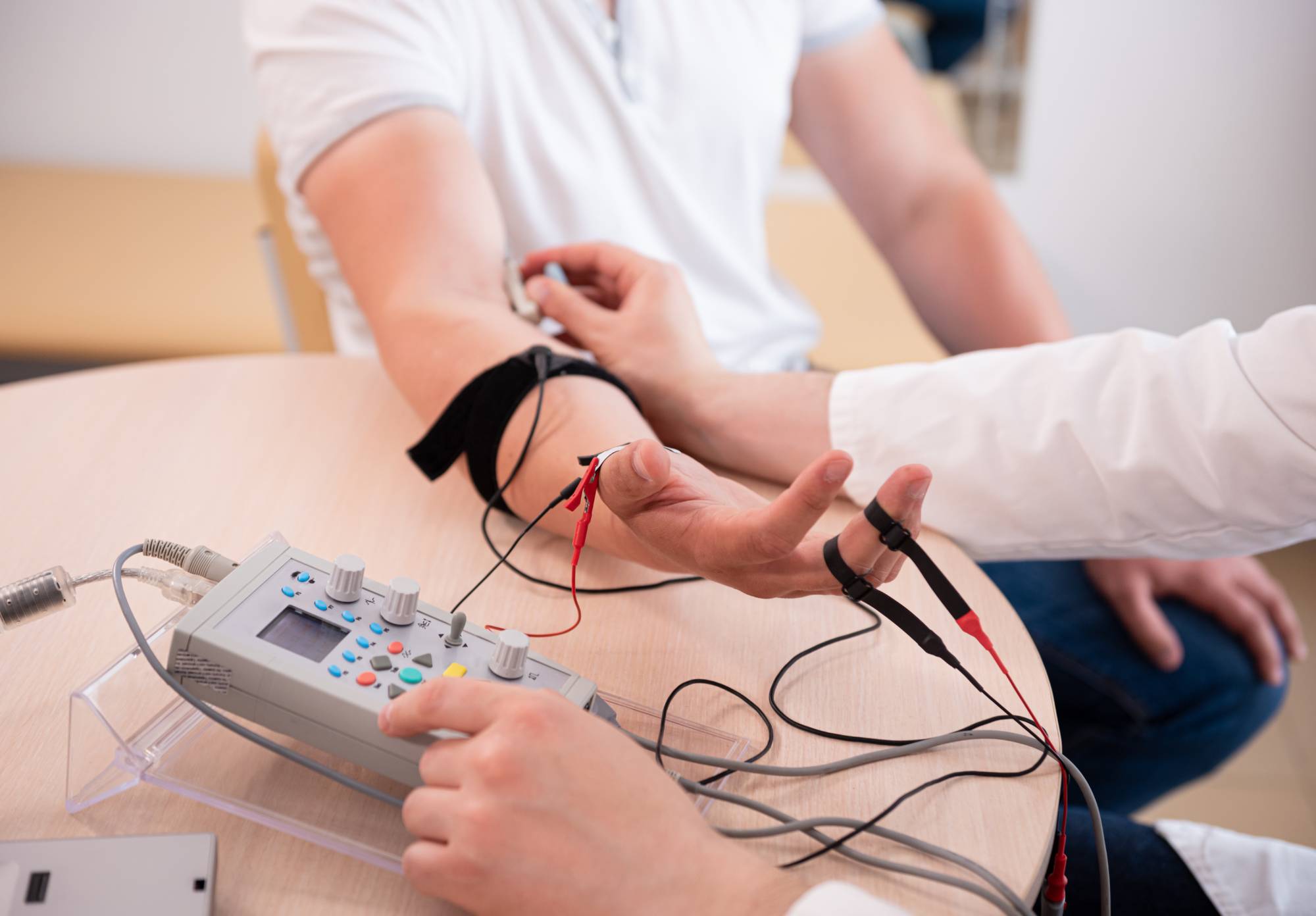Finally understand what’s causing your numbness, tingling, or muscle weakness with precise EMG testing.

Reviews

You’ve been dealing with unexplained symptoms long enough. That tingling in your hands, the weakness in your legs, the numbness that comes and goes – you need real answers, not more speculation.
EMG testing gives you exactly that. Within minutes, we can pinpoint whether your symptoms stem from nerve damage, muscle disorders, or conditions like carpal tunnel syndrome or herniated discs. No more wondering if it’s serious or if it will get worse.
Once you know what you’re dealing with, your doctor can create a treatment plan that actually works. You’ll finally have a clear path forward instead of living with uncertainty and discomfort.
NY Spine Medicine has been providing diagnostic testing to Bergen County residents for years. We understand that coming in for nerve testing often means you’re worried about what might be wrong.
That’s why we take time to explain the process, answer your questions, and make sure you’re comfortable throughout the entire procedure. You’re not just another appointment – you’re someone who deserves clear answers and respectful care.
We use advanced EMG equipment and provide detailed results that help your referring physician develop the most effective treatment approach for your specific condition.

Your EMG test starts with a brief consultation about your symptoms and medical history. Our technician explains exactly what will happen during both parts of the test – the nerve conduction study and the electromyography.
During the nerve conduction study, small electrodes are placed on your skin to measure how well your nerves transmit electrical signals. You’ll feel mild electrical pulses, but nothing painful. The electromyography portion uses a thin needle electrode to record electrical activity in your muscles.
The entire process typically takes 30-60 minutes depending on which nerves and muscles need testing. You’ll receive preliminary results immediately, and a detailed report goes to your referring physician within 24 hours so you can move forward with treatment quickly.

Ready to get started?
Your EMG testing includes both nerve conduction studies and electromyography to give a complete picture of your nerve and muscle function. This comprehensive approach means you won’t need multiple appointments at different locations.
The testing can diagnose conditions like carpal tunnel syndrome, ulnar neuropathy, radiculopathy from herniated discs, peripheral neuropathy, and various muscle disorders. You’ll also receive clear explanations of what the results mean for your specific situation.
River Edge residents appreciate our convenient location with easy parking and the fact that most insurance plans cover EMG testing when medically necessary. Same-day scheduling is often available for urgent cases, and our staff handles all insurance verification beforehand so you know what to expect.

New York:
Florida:
Support